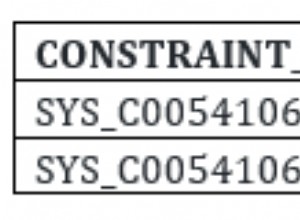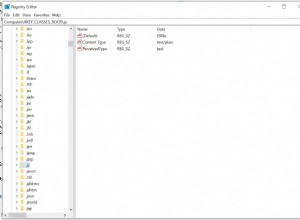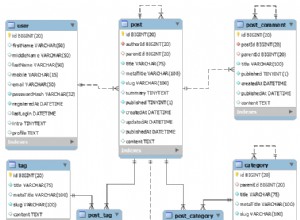Als Problemumgehung können wir zusätzlich SELECT ein Alias für die Spalte, die bei PARTITION BY verwendet wird Ausdruck. Dann wendet PG die Optimierung an und verwendet den Index.
Die Antwort auf die Frage könnte lauten:PG wendet keine Optimierung an, wenn zusammengesetzter Typ verwendet wird . Beachten Sie, wie es funktioniert:
PARTITION | FILTER | IS USED?
------------------------------
ALIAS | ORIG | NO
ALIAS | ALIAS | YES
ORIG | ALIAS | NO
ORIG | ORIG | NO
Siehe diese dbfiddle
create table agreement ( ag_id int, name text, cost numeric(10,2) );
create index ag_idx on agreement (ag_id);
insert into agreement (ag_id, name, cost) values ( 1, '333', 22 ),
(1,'333', 33), (1, '333', 7), (2, '555', 18 ), (2, '555', 2), (3, '777', 4);
select * from agreement;
create function initial ()
returns table( agreement_id int, ag agreement ) language sql stable AS $$
select ag_id, t from agreement t;
$$;
select * from initial() t;
explain( analyze, costs, buffers, verbose ) with totals_by_ag as (
select
*,
sum( (t.ag).cost ) over ( partition by agreement_id ) as total
from initial() t
)
select * from totals_by_ag t
where (t.ag).ag_id = 1; -- index is NOT USED
explain( analyze, costs, buffers, verbose ) with totals_by_ag as (
select
*,
sum( (t.ag).cost ) over ( partition by agreement_id ) as total
from initial() t
)
select * from totals_by_ag t
where agreement_id = 1; -- index is used when alias for column is used
explain( analyze, costs, buffers, verbose ) with totals_by_ag as (
select
*,
sum( (t.ag).cost ) over ( partition by (t.ag).ag_id ) as total --renamed
from initial() t
)
select * from totals_by_ag t
where agreement_id = 1; -- index is NOT USED because grouping by original column
explain( analyze, costs, buffers, verbose ) with totals_by_ag as (
select
*,
sum( (t.ag).cost ) over ( partition by (t.ag).ag_id ) as total --renamed
from initial() t
)
select * from totals_by_ag t
where (t.ag).ag_id = 1; -- index is NOT USED even if at both cases original column




